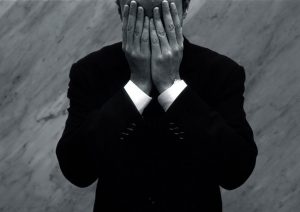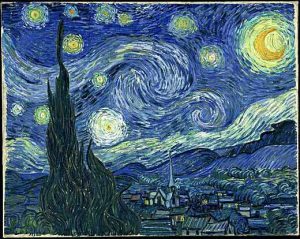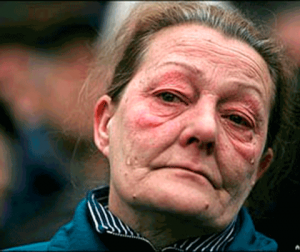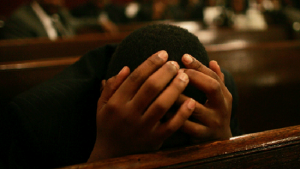While most of us are so busy with doing that, we have little time for being, the days surrounding major holidays can feel especially overwhelming. Most of us seem to lose touch with our connection to the natural world until we experience a life-changing event that locks that moment down into the month or the season. “The Holiday Season,” with capital letters, is one of those markers that is meant to provide a space for reflection, wonder, and deep joy. Advertisers capitalize on our sentiment through advertisers using images of families or neighbors coming together to cheer up individuals who are portrayed as alone and lonely, if not downright abandoned.
Unfortunately, many lonely people do not have a cheering group of neighbors, friends, or families eager to surprise them with holiday lights, tins of cookies, or invitations to join them for a holiday meal. Loneliness and hopelessness can increase while images of altruistic concern and heartwarming moments seem to be the bar against which all holiday experiences should be measured.
Once the first day of winter arrives, the shortened days and decreased exposure to sunlight generate unexpected feelings of depression for many along with lethargy that comes from the resultant vitamin D production in the body. If you have experienced loss, heartache, or depression, the change in season can send you spiraling deep into a very dark place. Putting on a brave face for others can be especially difficult when the world is blasting us with images of group hugs and the memory of your final hug with someone you love is all that you can think about.
No matter what the cause of your holiday lows might be, here are ten tips that might help you cope during this season:
Don’t completely isolate yourself from other people. Social connection has great healing power – attend a faith-based service, even if you are not committed to a particular religion, just to experience the positive feelings of being surrounded by others.
Allow yourself space to acknowledge any losses, despair, or hurt you are feeling, but do not let yourself use the loss as an excuse to escape through alcohol or other addictive substances.
If a particular ritual is just too painful to try and continue this year, accept that there are limits to what you are capable of doing and forgive yourself for that.
Don’t allow yourself to use any holiday-related time off from work as an excuse to hide from the world – stick to as regular a schedule as you can.
Don’t binge eat or binge drink – while these may offer a sense of temporary escape, they are not healthy coping methods.
If you’re recovering from a broken relationship, it’s especially important not to dwell on the past, an imagined future, or thoughts of revenge. Make sure that your ex’s contact information is wiped from your phone to help you avoid any temptation to make any desperate attempts at reaching out.
If you’re recovering from grief at the loss of a loved one, create a special new ritual that honors the person who is no longer there. Light a special candle and offer a silent or spoken tribute to this person. Add a special decoration to your collection and display it in this person’s honor. Choose a special recipe that was always a favorite and prepare it each year – saying a special prayer in their honor before consuming it.
Reflect on what has brought the most joy to you during this season in past, happier years. Force yourself to engage in this aspect of the holiday with as much energy and commitment that you can muster. If it was the lights of the season, throw your heart into decorating your home with the lights that always brought a smile! If it was the cookies, bake your heart out – even if you aren’t the most talented chef, enjoy doing something that your loved one would have enjoyed seeing happen. If it was the carols and songs of the season, let the CDs, Sirius, or Pandora serenade the silence with the songs this person loved.
Remind yourself that at this time of year, the shortest day falls on the last day of autumn. Winter may bring the coldest weather, the deepest hibernation of animal life, the barren trees may stand out starkly against the winter sky, but remind yourself that once the first day of winter has arrived, the days are once again growing in length and the nights are beginning to shorten. This is a magic time when we can feel the change in the natural world on a very deep level. The feelings of depression or deep grief you feel may ebb and flow like a tide, but remind yourself that there is a natural rhythm in life and it truly is always darkest before the dawn.
Honor your feelings, but don’t allow yourself to get so wrapped up in despair or hopelessness that you retreat fully from the world around you. When we let ourselves get sucked into a place of abject despair and darkness, we are sacrificing the potential for joy that others might bring you – or that you, yourself, could bring others.
If your holiday season is a time of depression, grief, or hurt, know that you are not alone. Others also are suffering as the world blares entreaties to be “merry and bright,” but sadness and heartache are filling your heart. Keep active over this period, show up in life, and remind yourself that each day that you do, it’s one less day you’ve given depression the power to take from your life.
By Suzanne Degges-White, Ph.D., LPC, LMHC, NCC. Susan is professor and chair of the Counseling, Adult and Higher Education department at Northern Illinois University. She is a licensed counselor whose focus includes working with individuals and families facing transitions. Her academic research explores development over the lifespan with a strong focus on women’s relationships and women’s developmental transitions. She is currently president of the Association for Adult Development and Aging, a division of the American Counseling Association.









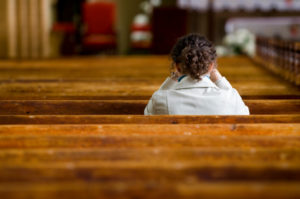 Robin Williams’ death – like the death of so many others by suicide who have suffered from severe mental illness – issued from an unsound mind afflicted by a devastating disorder. Depression affects not just a person’s moods and emotions; it also constricts a person’s thinking – often to the point where the person feels entirely trapped and cannot see any way out of his mental suffering. Depression can destroy a person’s capacity to reason clearly; it can severely impair his sound judgment, such that a person suffering in this way is liable to do things, which, when not depressed, he would never consider. Our Lord’s ministry was a ministry of healing, in imitation of
Robin Williams’ death – like the death of so many others by suicide who have suffered from severe mental illness – issued from an unsound mind afflicted by a devastating disorder. Depression affects not just a person’s moods and emotions; it also constricts a person’s thinking – often to the point where the person feels entirely trapped and cannot see any way out of his mental suffering. Depression can destroy a person’s capacity to reason clearly; it can severely impair his sound judgment, such that a person suffering in this way is liable to do things, which, when not depressed, he would never consider. Our Lord’s ministry was a ministry of healing, in imitation of 
